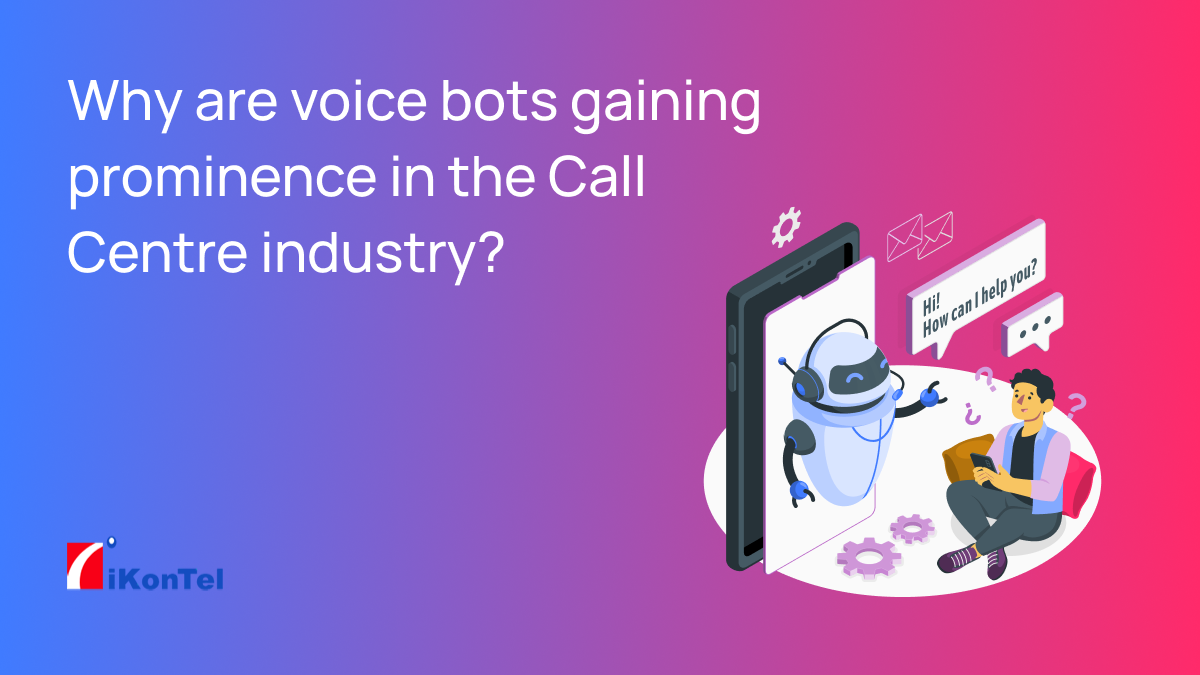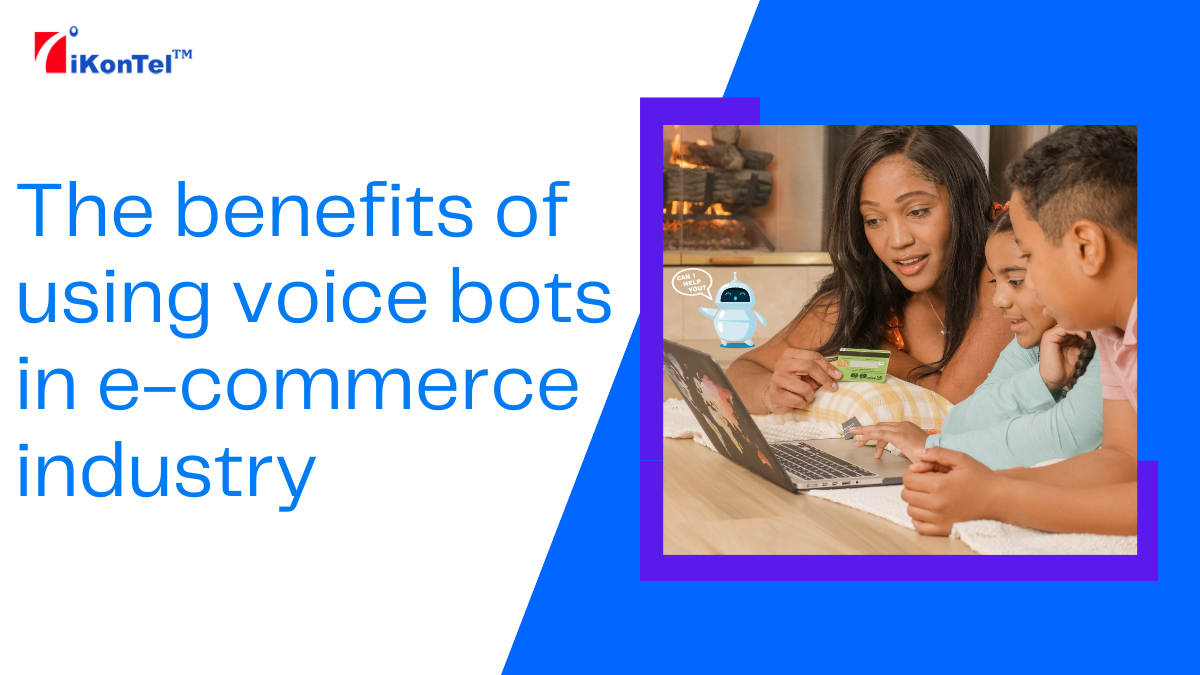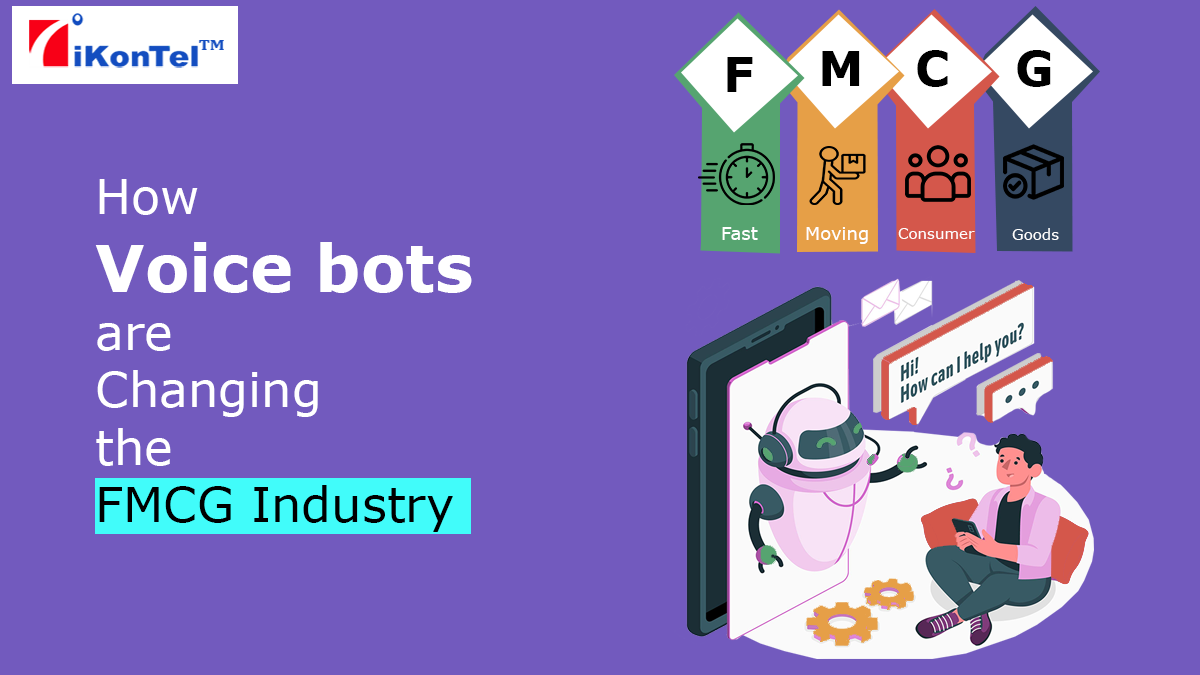Changes are inevitable so the FMCG industry. This industry is a well knitted industry from dealer to distributors and from retailers to consumer. And at each stage communication is immensely needed. A littler delay or hindrance can disappoint your consumer and your vendor well. And your competitors are well aware of this and they take the advantage of this. Eventually you miss the boat.
To retain your market chunk and consumer you need to embrace today’s communication technology called voicebot. This software has already made a significant impact on the fast-moving consumer goods (FMCG) industry.
Let’s discuss more on this.
Customer point of view
Here are some ways in which voice bots can provide numerous benefits to the FMCG industry:
1. Voice-based Shopping: Voice bots enable consumers to place orders for FMCG products using voice commands. This technology simplifies the shopping process, making it more convenient and accessible. Consumers can use voice assistants to reorder products, add items to their shopping lists even find nearby stores that carry specific FMCG products.
2.Personalized Recommendations: Voice bots leverage AI algorithms to learn about individual consumer preferences and make personalized product recommendations. By analyzing past purchase behavior and preferences, voice bots can suggest FMCG products that matches a consumer's needs and preferences. This personalized approach enhances the overall shopping experience and helps FMCG brands deliver targeted marketing messages.
3.Enhanced Customer Service: FMCG companies are increasingly using voice bots to provide customer support and address queries or concerns. Voice assistants can offer instant responses to commonly asked questions, such as product usage instructions or information about ingredients. By utilizing voice bots, FMCG brands can improve their customer service efficiency and provide round-the-clock support.
4.Brand Engagement and Loyalty: Voice bots offer opportunities for FMCG brands to engage with consumers in new and interactive ways. Brands can develop voice-activated games, quizzes, or storytelling experiences that create memorable interactions with their target audience. These engagements help build brand loyalty and increase customer retention.
5. Voice-Enabled Marketing Campaigns: FMCG companies are incorporating voice bots into their marketing campaigns to reach a wider audience. Voice assistants can deliver personalized advertisements, promotions, and product information to consumers based on their interests and preferences.
6. Data Collection and Insights: Voice bots gather valuable data on consumer behavior, preferences, and shopping patterns. This data helps FMCG companies gain insights into consumer trends, identify market opportunities, and refine their product strategies. By analyzing the data collected through the process, brands can make informed decisions to optimize their product offerings and marketing efforts.
7. Integration with Smart Appliances: With the rise of smart homes and IoT devices, voice bots can integrate with various FMCG products and appliances. For example, voice assistants can be connected to smart refrigerators to manage grocery lists, suggest recipes based on available ingredients, or notify users when certain FMCG products are running low. This integration enhances the overall user experience and promotes brand loyalty.
8. Voice Analytics and Insights: FMCG companies can utilize voice bot analytics to analyze user interactions, identify patterns, and gain insights into consumer behavior. This data can help brands understand consumer preferences, optimize marketing messages, and refine their product offerings to better cater to customer needs.
9. Voice-Enabled Social Media Engagement: FMCG brands are exploring voice bots to enhance their social media presence and engagement. Voice assistants can be integrated with social media platforms to enable users to interact with brands, ask questions, participate in contests, and receive real-time updates.
10. Voice-Enabled Product Information: FMCG brands are leveraging voice bots to provide detailed product information to consumers. By using voice commands, consumers can access information such as nutritional facts, ingredient details, product usage instructions, and allergen warnings. This helps consumers make better purchasing decisions
11. Voice-Powered Feedback and Reviews: Voice bots allow consumers to provide feedback or write reviews using voice commands, simplifying the process and encouraging greater participation. FMCG brands can use this feedback to improve their products, address customer concerns, and enhance overall product quality.
It's important to note that while voice bots have the potential to transform the FMCG industry, their adoption and impact may vary depending on factors such as consumer preferences, technological infrastructure, and regulatory considerations. As technology continues to advance, voice bots will play a much more significant role in shaping the future of FMCG industry.





